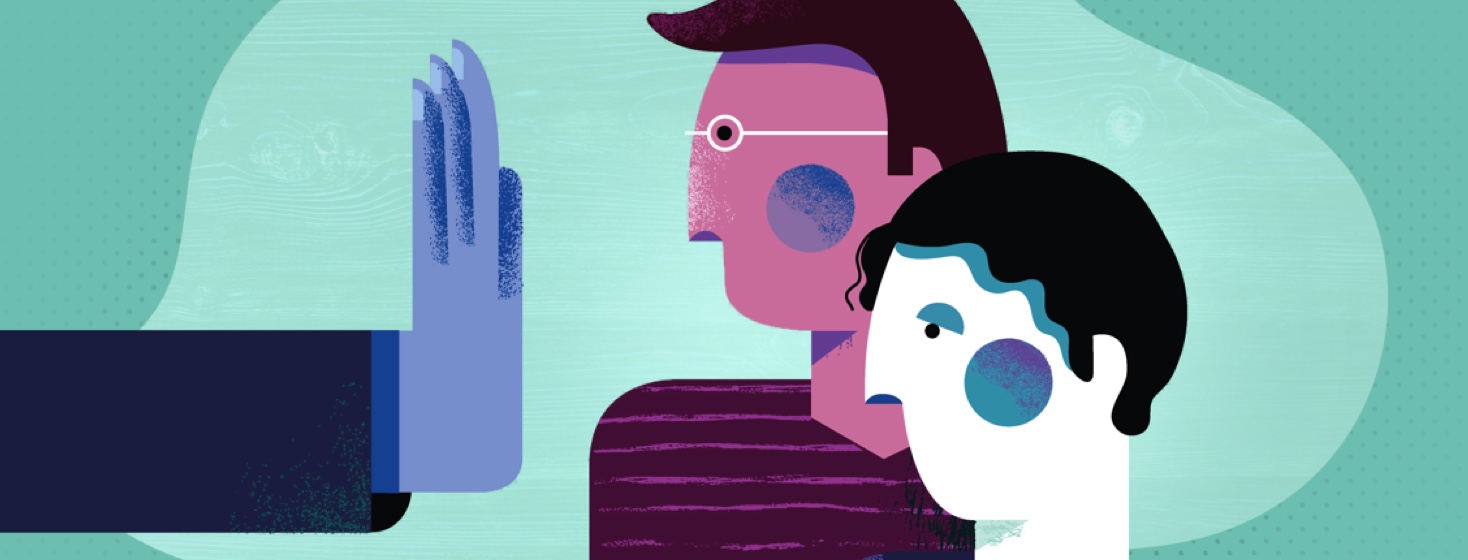Overcoming Self-Stigma With Schizophrenia
There are a lot of ugly misconceptions about my diagnosis of schizophrenia.
Myth #1: There's no hope for recovery. Myth #2: It's caused by poor parenting. Myth #3: People with the condition are violent. Myth#4: People living with the condition are demonic. Myth #5: Schizophrenia is split personality.
Unfortunately, the myths seemingly turn into beliefs for people around the world.
What is self-stigma?
The stigma of mental illness is a prevalent barrier to seeking help. I redefined stigma as the widespread unspoken code that blatantly and subtly discriminates, ostracizes, blames, and puts people in a box.
Worse yet, the stereotypes have played mind games with me but I'm not alone in this struggle carrying the weight of the label living with a brain disorder. What do we call this? Self-stigma or stigma internalized.
The stigma that comes with a schizophrenia diagnosis
Stigma creeps in the back door and creates walls between loved ones and the best of friends. It's a major distraction that can hurt. I'm not violent or dangerous but holding the label created doubts for some of my loved ones.
The thoughts at the back of their minds when I was first diagnosed were, "She'll never be the same. Can I have Ashley around my kids? She won't be able to live a normal life." The stigma even made me think twice!
No, I'm not a threat to safety
I reflected to myself, how would people view me if they saw me walk into a mental health center. The security at the front door made the stigma even more real. I thought to myself the people in the lobby might be a threat to my safety, even though we all have a diagnosis.
However, the facts remain the same: We are not our mental illnesses. Recovery is possible and managing this condition will be a fight but it's achievable. In spite of the stress of stigma and having self-defeating thoughts I learned how to accept myself and learn about self-awareness to manage my health and life.
Overcoming self-stigma
My journey to overcoming the self-stigma started with learning more about my diagnosis. I can recall me and my mother doing research online. We came across a statistic that made it seem that my life would be cut short to an early death compared to the wider population.
We decided I wasn't going to be a part of that statistic. My sister found an advocacy group and we attended support groups. These self-help meetings were for people living with mental illnesses and our loved ones. I became heavily involved with the organization by volunteering and turned into an advocate overnight – and the rest is history.
This or That
Do you consider yourself an advocate?
Leaning on my schizophrenia community
There are key players in the recovery community but everybody does their part. In fact, we are all on the front lines of battle – people like myself living in recovery, our caregivers, family, healthcare professionals, educators, trainers, and advocates. The recovery world is a tight-knit community, we share resources and information on how to live well.
The stigma has faded amongst us because we know our truths. The facts: Everybody is different, but we're all in this together and we will win the war on those self-defeating thoughts that try to limit us.
Learning about myself and my diagnosis
Since my diagnosis in 2007, I've learned about the new Ashley, but still have ways to go. I am aware of my triggers, warning signs, and how me and my family might handle a health crisis. My coping skills focuses on my strengths. While working in the mental health field reinforces the education piece.
Trumping self-stigma with schizophrenia
Finally, if you or someone you know struggles with self-stigma there are ways to learn yourself in a new light. I encourage you to participate in self-help meetings for the inside scoop to get referrals and information on the most current treatments, etc. Continue learning more about the diagnosis: the signs, symptoms, common triggers, treatment options, and coping techniques.
Do those things you enjoy doing, make them a part of your wellness tools and have fun! Some of my top coping skills are my therapy, journaling, and advocacy work. What are some of your coping mechanisms? Where can you go for more information? Lastly, I want to reiterate how recovery is possible, and yes, you can live a normal life.
